State’s Attorney Kim Foxx talks expungement after Illinois cannabis bill
Ralf Nabong/Chicago Sun-Times via AP
Cook County State’s Attorney Kim Foxx smiles during the Women’s March in downtown Chicago on Saturday, Jan. 18, 2020.
Cook County State’s Attorney Kim Foxx came to the Loop campus on Tuesday, Jan. 21 to speak with law students and professors alike about the decriminalization of cannabis in Illinois. The law that legalized recreational cannabis for adults over the age of 21 was put into place on Jan. 1. The flower’s legalization has sparked debate among lawmakers on whether or not people who have cannabis-related crimes on their record should have it expunged.
Foxx stated that about 40,000 felony drug cases come through the State’s Attorney’s office each year. The number of misdemeanors is about 250,000, also according to Foxx. The number of misdemeanors on drug offenses in New York and Los Angeles combined do not equate to the number in Cook County.
“When you think of 250,000 misdemeanors and 40,000 felonies, you’re talking about 300,000 cases that we have every year in a county that is plagued by gun violence,” Foxx said. “So we have to talk about our priorities. What we know, looking at all the cases that come through (…) about 40 percent are drug-related. Sixty percent of that 40 are drug possession.”
Foxx went on to express her dismay in how Cook County has treated the city’s drug issue as a criminal issue and not a mental health issue.
“We were using the rhetoric, we were using the buzz words,” she said. “But in our practice, in our actions, the continual processing of people for minor drug offenses or low-level drug offenses was the order of the day.”
The prosecution of low-level drug offenses persisted even after early 2016 when Foxx’s predecessor, Anita Alvarez, decided the county would cease processing most minor drug-related offenses. In reality, the office simply slowed down the process over time, but the practice still took place, and black Chicagoans were the most affected.
“African Americans were severely overrepresented [in that group] and prosecuted, followed quickly by Latinos,” Foxx said. “What we realized, and what the data showed us, is that marijuana usage does not vary among racial groups.”
Despite that fact, black citizens were prosecuted the most and the harshest.
Foxx hopes to repair the damage that has already been done. Now, those in Cook County who have been charged will have their charges vacated, only with amounts that are assumed to be legal.
“If we in Cook County start vacating convictions, then the state should soon follow,” she said.
Her office partnered with a company based out of California for Code for America to help them devise a plan that would fairly execute the expungements. They helped develop the plan for any conviction under 30 grams will be automatically expunged and their conviction will be vacated. There are no fees or lawyers associated with the vacation, but Foxx asks for those who are waiting for expungement to be patient. They will soon receive a letter in the mail notifying them of their expungement. Those who have been charged with a low-level drug offense can still go the traditional route and apply for expungement on their own time.
Ester Franco-Payne, executive director of Cabrini-Green Legal Aid, helps those in need of legal assistance when the State’s Attorney’s office might be giving pushback.
“We’ve been able to participate in the landscape [of the cannabis bill] and see how we are moving, given the understanding of how this bill is supposed to work and what we see as the gap in our clients,” Franco-Payne said. “We want to speak up and be a voice for them.”
Cabrini-Green Legal Aid is the only organization in the state that gives legal aid to those with a criminal background. Since the cannabis bill, Cabrini-Green Legal Aid has been flooded with clients who are looking to get their record expunged as soon as possible so they can find work or put a down payment on a car or home. Their main goal, according to Franco-Payne, is to meet 100 percent of the client’s needs and ensuring the outcome is positive.
They currently perform about 70 percent of the expungements in Cook County and about 20 percent in the state of Illinois. After a successful expungement, their legal aids attempt to ensure their clients are successfully integrated back into the community. They work directly with the State’s Attorney’s office to give representation to about 2,000 clients annually.
As of Jan. 21, there are about 800,000 records that are eligible for expungement. About one-third of all expungements will be automatically expunged over time. Another third (11,017, as of today) have been pardoned by Gov. J.B. Pritzker. The final third will require self-petition by the person who was charged.



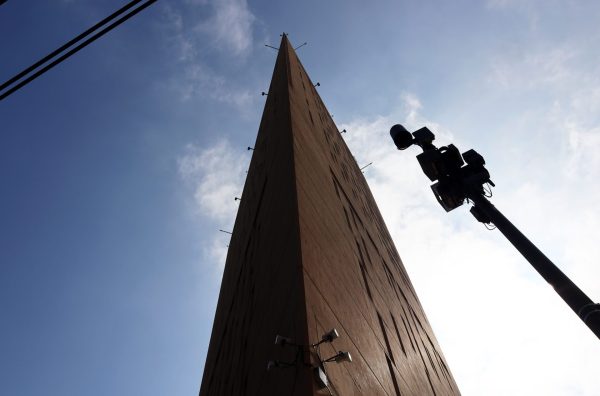
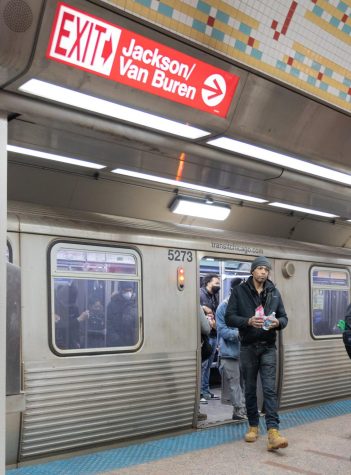
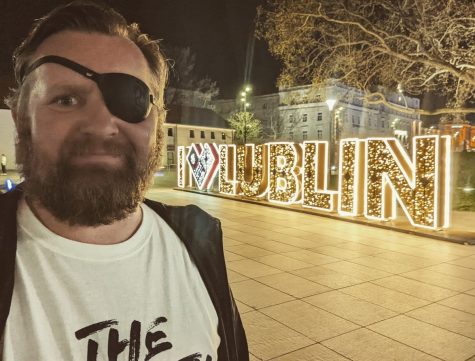

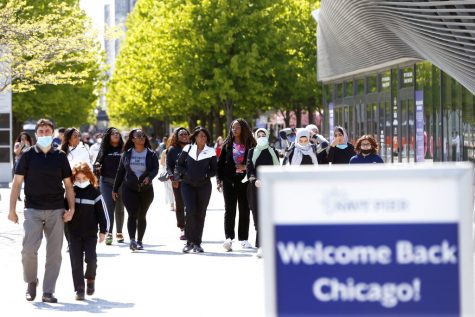





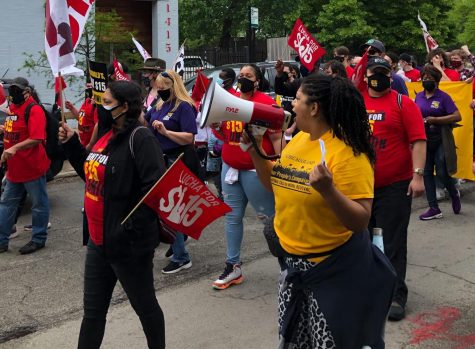




Nicholas Young • Feb 20, 2020 at 7:24 am
Don’t believe the BS people I would love to have the civil law and true law to be on my side to protect me enough from what I am going to say but she is not only a horrible states attorney but a horrible and racist person who doesn’t deserve not only the position she has controlled but doesn’t deserve to be sitting outside of the money pit centered in crook county which she has had no problem filling with her own people amongst others and has single handedly has had more to do with the putting people incarcerated through this whole garbage and corrupted system at the same time has no concern what she’s done to people who have been reassigned felons for marijuana rather than misdemeanors so this crooked system in cook county could continually extort and keep people in the vicious cycle that doesn’t fix or help the social disruption in the state but adds to deep pockets the state pays its also corrupted officers,judges,lawyers,and police who will only give you 2 options in the city time or money& and if you don’t have enough of either it’s even better to use the taxpayers money not to fix the wrongs of the city or towns around the city such as the extortion lights which have cost I’m just guessing 3/4 or more of the drivers in the state or the construction which is needed to fix most of the holes which destroy most vehicles in the city and around but instead pay the corrections officers who are usually as ignorant and spiteful and should not be working in a job that’s supposed to reform the people but instead again end up costing the taxpayers more and more due to the hidden hate and ignorance within the jail once the injure,mame,or kill someone .All the money the so called state ends up dishing out for its mistakes are 100% paid for by the state and the people are the state which is and should be simple to understand.Without people there is no money,obviously without foolish drivers who do make infractions which are I guess writed by paying money which I don’t understand how that makes the driver better and more attentive at driving again but nonetheless without just the two examples of the states money ,and don’t forget about the traffic lights and tickets which bring in what has to be at least in the hundreds of thousands alone all to pay for the mistakes,profilings,and injuries and injustices done by the people who are supposed to be upholding the law and representing the law like this state’s attorney Kim Fox who has not only completely fed bullsh&t to the people in these commercials and in person on camera and in and out of courts within cook county where she uses her upbringing in Cabrini green and tough time within there to work on the people to believe because of that she’s some sort of saint who will only do great things for everyone because she knows what a bad break feels like when in reality from people like myself who has had letters sent and signed by her letting me know she fully supports the injustice and corruption all over and will gladly take part in the extortion and my guess is really not pay any attention but just go along with the bad justice and police corruption throughout crook county and I use crook instead of cook county because until this city is fixed from within and cleared of all corrupt and double minded and triple faced so called protectors of the people and justice it will continue to be the county of crooks such as Kim fox and as I know I am far from the only person who has a deep seeded dislike for the disgrace but everyone from the people from her home town so to say of Cabrini and the police themselves have no care like or respect for her and she’s only one of the people who in this city make justice and crime seem almost equal and until people like this are put in the same situation and places every other person can be nothing will ever change….